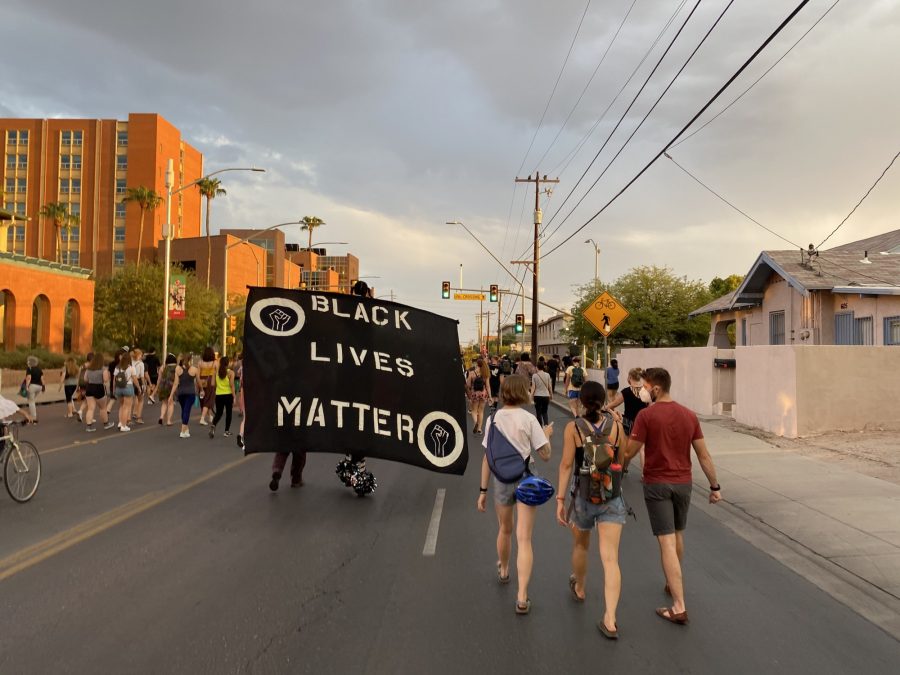Disclaimer: I am white. I am part of the race that has been responsible for the centuries of violence against Black people. My culture is the dominant culture in the United States. I have never had a bad interaction with the police. I have never been persecuted or discriminated against. I can walk or run anywhere I want to without fear. The only “talk” my parents gave me was about sex.
I am an ally of the Black community. I support Black Lives Matter. I support defunding the police. I make a conscious effort every day to consider my privilege and avoid perpetuating narratives based on white supremacy of white saviorism.
Perhaps the most troubling issue plaguing our national discourse at the moment is a disastrous lack of nuance. Nothing illustrates this more clearly than the gap between support for Black Lives Matter and support for defunding the police — two causes intimately related to each other. One recent poll from Spectrum News 1 in Los Angeles showed that 46% of participants supported reducing police budgets, while 68% saw police brutality against Black Americans as a widespread problem and 60% supported the Black Lives Matter Movement. The Spectrum News poll is consistent with the trend nationwide, with far more people supporting Black Lives Matter than defunding the police.
While there has been no shortage of conflict surrounding the words in the statement “Black Lives Matter” — if you need an example, simply look to the countermovement “all lives matter,” which, unfortunately, is everywhere — it is relatively straightforward in its meaning. The lives of Black Americans are not being valued in our criminal justice system or society at large. Period.
RELATED: Postal Progress Q&A: How UA artists are fighting for racial equity one postcard at a time
“Defund the Police” is significantly more complicated. Broken down into its literal definition, it means to take funds away from the police. The problem is that when many Americans hear it as a chant or read it on a sign, they think the goal is to get rid of police departments.
The negative response towards defund the police can be broken down into two basic elements. First is the positive view of the police most white Americans have. In the U.S., 75% of white people say police in their community do “an ‘excellent’ or ‘good’ job … treating racial and ethnic groups equally,” and in “using the right amount of force” for each situation, according to a June 2020 publication from the Pew Research Center.
The second element in understanding a lack of support for defund the police arises when the meaning of the slogan is confused with police abolition. This is most clear in a Politico’s Morning Consult poll that found that 59% percent of voters support diverting police funding to community programs, while only 29% support “defund the police”— a clear depiction of the general voter’s misunderstanding of what defund the police truly stands for, as these two are one and the same.
The solution to mending this gap of understanding is a commitment by those calling for defunding the police to engage with the public in a more nuanced, in-depth explanation of the phrase and also a commitment by everyone reading protest signs or listening to chants to withhold response until they can gain a greater understanding of what defund the police means.
RELATED: What experts say about mental health during times of social and political tension
In a dialogue shaped by 280-character Tweets, memes and various other brief snippets of heated opinion, this would be a radical departure from how we engage with each other and with issues. It takes more effort and more time, but the payoff is immense.
The nature of political rhetoric in the past decade has grown increasingly emotionally divisive. Content that makes people scared and angry is the most effective for driving up engagement online, and engagement drives up profit. Algorithms are designed to push the most controversial content to the top of everyone’s feed regardless of its truth or value to constructive discourse.
Politicians of every party use divisiveness to seize and maintain control for the sake of power — not to help the people they are governing, and corporations aren’t likely to start shunning cash for the democratic good any time soon, so it’s up to us. It’s easy to forget our power in shaping today’s discourse when most of it occurs on platforms controlled by billionaires — all while COVID-19 has curtailed in-person dialogue — but we hold all the power.
It’s time we quit letting the desires of the wealthiest people in America to get even more wealthy destroy any semblance of constructive, kind and respectful dialogue in this country. This isn’t going to be a quick process — it will take years to undo the damage done and begin to build bridges across the rifts that have developed. It won’t be easy either.
The most powerful forces in our government and economy have a vested interest in keeping us divided and our politics divisive, so it’s going to be an uphill battle. All of that being said, I believe that there is a single idea with which we can find the inspiration and the seed of common ground that we need to get started. We all want the same thing. Not as democrats and republicans or as Americans or residents of any state or as members of our respective camps in regard to numerous issues, but as human beings.
RELATED: OPINION: Want to make a change on campus? Start here
We all want a better world. We want safer lives for ourselves and our children if we have them or plan on having them. We want to comfortably meet our basic needs so we can be free to pursue our more complex ones. We want the government to protect our rights and improve our lives. Most of us are selfish enough that fundamentally we only want things for ourselves. Some of the more selfless among us genuinely want the same things for everyone that we want for ourselves.
Almost nobody wants bad things to happen to others, at least not directly. Our black and white discourse and the disinformation have convinced many people that the things they want necessitate the suffering and oppression of others. This simply isn’t the case. If we all engaged in a discourse aimed at securing what we want and trusted that what we want and need doesn’t require denying others anything they want or need, we would all be better off.
We would be happier, healthier and richer and our society would be smarter, kinder and safer. The only people who would suffer in this almost unthinkable reality are the same people working so diligently to divide us right now. And they wouldn’t really suffer. They would be less rich and less powerful but still plenty of both. That seems a small price to pay for a fundamentally better world.
Follow Aidan Rhodes on Twitter

Aidan Rhodes is a journalism major from Flagstaff, Arizona. He is a passionate chef, athlete and writer.









